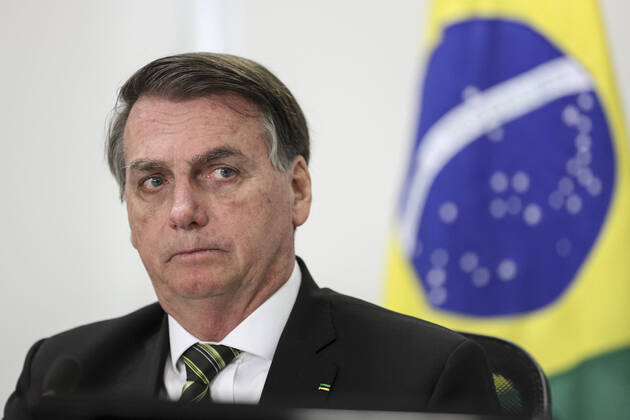Lula Triumphs Over Bolsonaro in Brazil to Lead the Country
Read all about this tight election — and what may be to come.
Outgoing Brazilian President Jair Bolsonaro.
Brazil’s primary and secondary elections took place on October 2nd and 30th. The two candidates in Brazil’s presidential election were Luiz Inácio Lula da Silva, nicknamed Lula, who served two terms as president between 2003 and 2010, and current president Jair Bolsonaro. The second round of voting on the 30th declared Lula victorious by a close margin of 50.9% to 49.1%.
Bolsonaro, a former military captain and current president, represented the center-right Liberal Party and centered his campaign around traditional Christian values such as opposition to both abortion and LGBTQ+ rights. Bolsonaro had also promised to crack down on corruption and crime while expanding Brazil’s economic growth. In anticipation of the election, Bolsonaro joined the Liberal Party after being without a party since 2019 due to his conflicting values with the country’s current parties but failing to collect enough signatures to create a party of his own. Due to the pandemic, Bolsonaro’s approval ratings plummeted as low as 22%.
Lula, a former union leader, represented the left-wing Workers Party and built his campaign around relieving citizens from economic hardships by implementing debt forgiveness programs and taxing the wealthy. Another of his top priorities is increasing conservation efforts for the Amazon rainforest and the land of Brazil’s indigenous people. Lula also plans to make an effort to expand social housing and address the current hunger crisis in Brazil. Lula left office in 2010 with an approval rating of 87%.
Just six months before the election, Brazilians were already in favor of Lula, 58% to 42%. Three months before the election, Lula’s lead increased by 1%. The first round of the presidential election on October 2, demonstrated just that, with Lula having 48% of the vote and Bolsonaro having the remaining 43%. Two populations that were expected to play a crucial role in determining the election were evangelical Christians and women. After the first round of elections, Lula’s lead began to narrow, proving it to be a tight race between the candidates. On October 30th, Lula beat Bolsonaro by a close margin of 50.9% to 49.1%, the closest presidential race in Brazil in 37 years.
Bolosonaro has spread disinformation and cast doubt over Brazil’s electronic voting system, claiming that if he were to lose the election it would be because of the voting system. After his defeat on October 30th, people in Brazil waited in anticipation to see if he would concede or contest the results of the election. Bolsonaro finally agreed to move forward with the transition of power after two days of silence. In a press conference, Bolsonaro’s chief of staff announced, “President Bolsonaro has authorized me — when requested, based on the law — to start the transition process.” Despite Bolsonaro’s cooperation in moving forward with the transition of power, he has yet to concede to Lula or officially that it was a fair and just election. Angered and convinced the election was stolen, Bolsonaro’s supporters have resorted to taking to the streets to create barricades and block traffic in an attempt to overthrow the election. In response to these protests, Bolsonaro announced that his supporters could continue with peaceful protests, “But our methods cannot be those of the left, like property invasion, destruction of goods and restrictions on the right to come and go.” While Bolsonaro did indirectly condemn the actions of his supporters it still leaves many Brazilians fearing their next steps.







